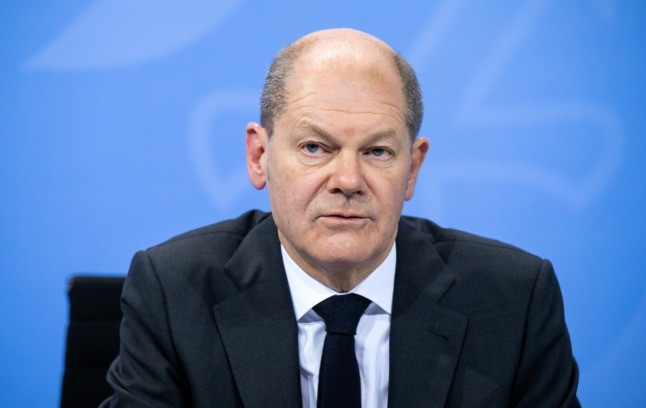Following a meeting with German state leaders on Tuesday, Chancellor Scholz announced contact restrictions would also affect people who are vaccinated or have recovered from Covid-19.
He said private gatherings would be limited to 10 people from December 28th. Children under 14 are not included.
The contact restrictions already in force for the unvaccinated will remain. People who choose not to get vaccinated are allowed to meet with their own household and a max of two people from another household.
“This is not the time for parties and cosy evenings with lots of people,” Scholz said, adding: “I would have liked to share more pleasant news just before the holidays.”
Meanwhile, Germany will ban spectators from large sporting and cultural events also from December 28th. “This applies in particular to football games,” Scholz added.
Nightclubs and discos will also have to close. As agreed at a previous round of talks earlier in December, the sale of fireworks for New Year’s Eve will be banned.
The measures agreed match those put forward in the draft proposals from Monday.
READ ALSO: EXPLAINED – German leaders consider new restrictions to fight Omicron wave
Chancellor Scholz said the measures already put in place in Germany – such as the nationwide restrictions on the unvaccinated – have been successful, and that is shown by the falling number of Covid infections.
But he said said there was a new challenge in the form of the Omicron variant.
Scholz said the aim was to “prepare Germany for the next corona wave”.
He said he understood people who don’t want to hear anything more “about corona, about mutations and new virus variants. But we cannot and must not close our eyes to the wave that is about to come.”
Scholz added: “Even those who have been vaccinated twice and those who have recovered run a high risk of becoming infected.”
Earlier in the day, Germany’s Robert Koch Institute (RKI) had called for tougher measures, including contact restrictions and the closure of restaurants, bars and clubs, to be introduced “immediately”.
But the government and state leaders have gone against this call.
Scholz said past experience had shown events like Christmas and Easter were not proven to be pandemic drivers, and that is why restrictions would come into force after Christmas.
He said people in Germany could enjoy the holiday season with caution and regular Covid testing.
However, states can choose to go further than the restrictions agreed at the federal level. The city state of Hamburg earlier on Tuesday announced it was to bring in Covid restrictions from December 24th.
Scholz said vaccination “remains our goal” so that as many people as possible are protected from Omicron. He said Germany’s target was to reach a vaccination rate of 80 percent. As of Tuesday, 70.4 percent of the population in Germany is fully vaccinated.
The next round of federal and state talks is scheduled to take place at the beginning of January.
READ ALSO: Germany’s vaccine panel recommends booster shots after three months



 Please whitelist us to continue reading.
Please whitelist us to continue reading.
Member comments